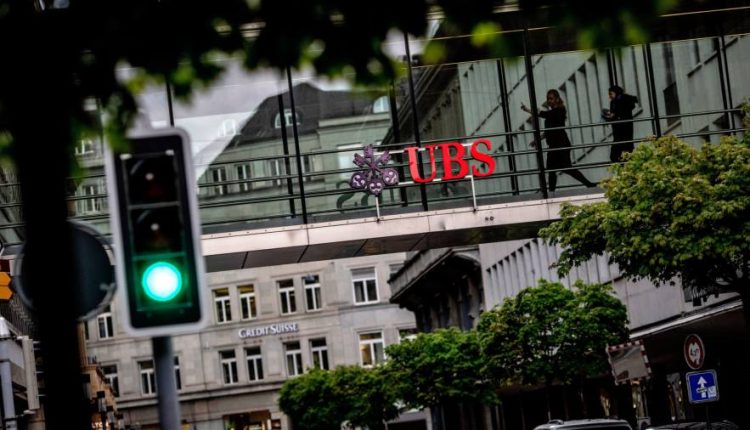Receive free UBS Group AG updates
We’ll send you a myFT Daily Digest email rounding up the latest UBS Group AG news every morning.
UBS is hanging on to its old name as it integrates Credit Suisse. Just as well. The combined acronym BUC(K)S states the expectations of the acquirer too baldly. The Swiss bank paid just 6 per cent of tangible book value for its struggling rival. It took on huge risks too. Second-quarter results suggest these are diminishing.
Success in wealth management became the holy grail for banks after the global financial crisis. The low price UBS paid for Credit Suisse reflected the market’s concerns about asset toxicity within Credit Suisse and the ability of UBS to retain wealth management clients. Local politics might have forced UBS to spin off Credit Suisse’s profitable domestic bank.
So far the double act of chair Colm Kelleher and chief executive Sergio Ermotti has managed all three issues well. UBS plans to absorb the Swiss bank. It promises no job cuts before end-2024 About 3,000 will go eventually. Debate will rumble on in Switzerland.
More importantly, UBS will halve a $55bn runoff book of Credit Suisse assets — the portfolio the market is worried about — by the end of 2026. That is ahead of schedule.
Investors approve. The UBS price to tangible book value ratio has climbed from a pro forma 0.7 times, at the deal, to par with year-end TBV per share estimates. UBS should aim to get back to 1.5 times in a couple of years.
Negative goodwill, the discount to net asset value, accounted for almost all of its $29.2bn of pre-tax profit. That much was expected. Excluding the adjustment, pre-tax profits of $1.1bn came in about 28 per cent below analysts’ expectations. Credit Suisse alone lost $2.3bn in the period, almost half in its investment bank.
But client inflows to the wealth management division matter more. Net new money for UBS alone was $16.2bn, the bank’s best result for the quarter in more than a decade. Almost all of the money came from Switzerland.
Credit Suisse lost assets in the quarter, though the flow turned positive in June. Together, the banks had $8bn of positive net new money flows in July and August. As yet, domestic rivals such as Julius Baer have had little luck snatching clients away.
A 5 per cent rally on the day reflected these inflows. That is pretty good considering the run the shares have had since early July. That makes UBS the top European bank by market value. Such metrics are proving UBS got a bargain.
The Lex team is interested in hearing more from readers. Please tell us if you think UBS will pull off a successful acquisition in the comments section below.
This note has been updated to say that UBS had $1.1bn of pretax profit in the second quarter.
Read the full article here

